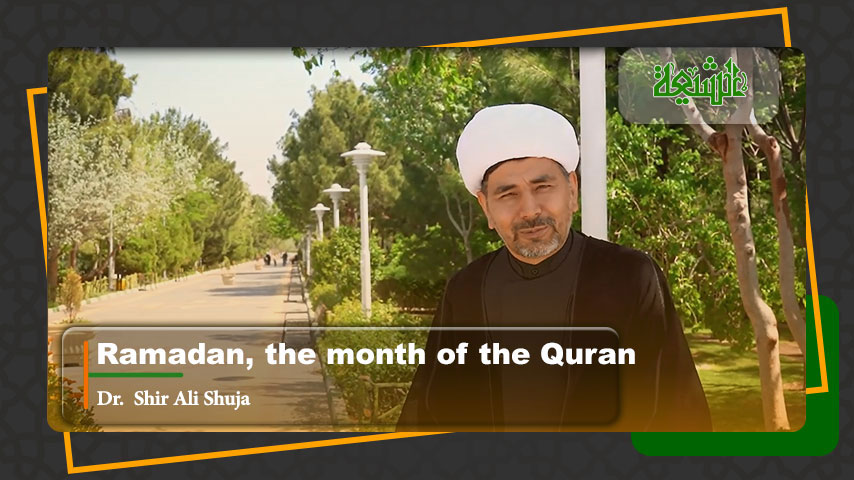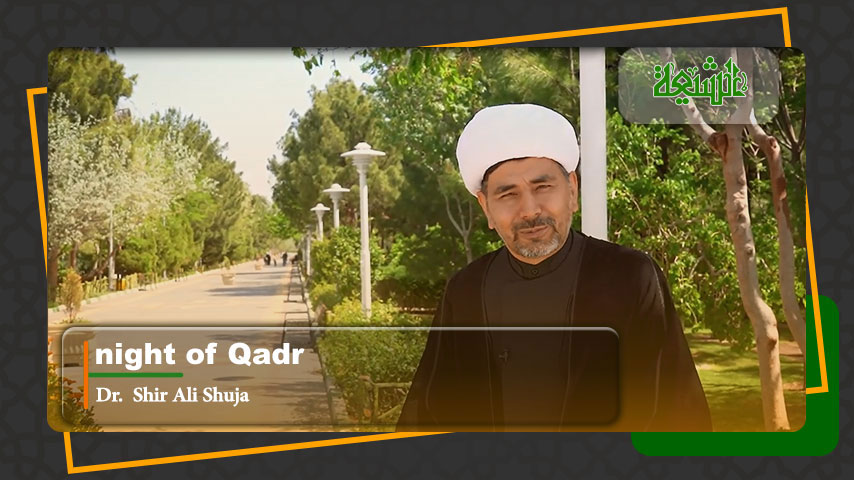Terrorism has emerged as one of the most significant global challenges of the 21st century, affecting societies across the world. While terrorism as a concept is not new, its association with religious ideologies, particularly Islam, has drawn intense scrutiny and debate. In recent decades, various terrorist groups such as Al-Qaeda, ISIS, Boko Haram etc., have falsely claimed to represent Islamic principles, leading to widespread misconceptions and fears. The need to separate these extremist narratives from the true teachings of Islam is crucial for understanding the complex relationship between religion and terrorism. Therefore, this study aims to examine the position of Islam on terrorism and to clarify the misconceptions surrounding the religion’s association with terrorist activities.
Definition of Islam
The term “Islam” is derived from an Arabic root S-L-M; which according to Hans Wehr, literally means submission; resignation and reconciliation (to the will of God)[1]. However, the term “Islam” in a technical sense means a display of humbleness and obedience to the message of the Prophet[2]. In other words, the term “Islam” is a religion of total and complete submission to the will and dictates of God; the Almighty and the directives of His Apostle; Hazrat Muhammad son of Abdullah. Thus, the adherents and followers of Islam are therefore referred to as Muslims (i.e., one who surrenders to the will of God).
Terrorism and its Characteristics
To effectively address the issue of terrorism, it is essential to first understand what it encompasses. Etymologically, the term “terrorism” comes from French terrorisme, from Latin: terror, “great fear”, “dread”, related to the Latin verb terrere, “to frighten”[3]. In 1794, a leader in the French Revolution; Maximilien Robespierre proclaimed that “Terror is nothing other than justice, prompt, severe, inflexible.” The Committee of Public Safety agents that enforced the policies of “The Terror” were referred to as “Terrorists[4]“. The word “terrorism” was first recorded in English-language dictionaries in 1798 as meaning “systematic use of terror as a policy[5]“. According to the Oxford Advanced Learner’s Dictionary, the term “terrorism” is defined as the use of violent action to achieve political aims or to force a government to act and the term “terrorist” is defined as a person who takes part in terrorism[6]. Thus, terrorism is a tactic often employed by individuals, groups, or state actors to create fear and coerce governments, societies, or specific groups into making political or social concessions.
However, contrary to the Oxford Dictionary’s definition of terrorism, the aim of terrorists is not restricted to achieving political goals, but it can be aimed to achieve ideological or religious goals. Thus, the term “terrorism” is better defined as the unlawful use of violence and intimidation, especially against civilians, in pursuit of political, religious, or ideological objectives. In other words, terrorism is a violent act or threat of violence against civilians or non-combatants to further a political, ideological or religious goal.
From the definition above, the key characteristics of terrorism include:
- Use of Violence or Threats: Terrorism involves acts of violence or the credible threat of violence. This can include bombings, shootings, kidnappings, assassinations, and other forms of aggression designed to instil fear[7].
- Targeting of Non-Combatants: Terrorists often target civilians or non-combatants, including women, children, and unarmed individuals, to maximize psychological impact[8]. The goal is to spread fear and uncertainty within a broader population, beyond the immediate victims.
- Political and other Motivations: Terrorism is inherently political, driven by the desire to bring about change in governmental policies, societal structures, or international relations. This distinguishes it from other forms of violence, such as criminal acts motivated by personal gain.
- Psychological Impact: The primary aim of terrorism is to generate fear, panic, and anxiety, influencing a larger audience than those directly affected by the violence. The psychological impact is often amplified through media coverage, which terrorists use to spread their message.
- Symbolic Targets: Terrorist acts are frequently carried out against symbolic targets, such as government buildings, landmarks, or events with high visibility, to draw attention to the cause and create a broader societal impact.
- Asymmetrical Warfare: Terrorism is a form of asymmetrical warfare, where relatively small groups or individuals use unconventional tactics to confront larger, more powerful opponents, such as states or military forces.
- Ideological Justification: Terrorist groups often justify their actions based on ideological, religious, or nationalistic beliefs. These ideologies provide a framework that motivates and legitimizes their actions to their followers.
Types of Terrorism
Based on the definitions above, terrorism can be broken down into various types, each with distinct characteristics:
- Political Terrorism: Actions carried out by individuals or groups aimed at achieving political goals, often targeting governments or political entities.
- Religious Terrorism: Violence motivated by religious ideologies, where perpetrators claim to act in the name of their faith. Groups like Al-Qaeda, ISIS, and others have used religious justification to commit acts of terror, claiming to act in the name of their faith.
- State-Sponsored Terrorism: When a government supports, finances, or carries out terrorist activities either directly or indirectly, to achieve its objectives. This can involve using proxy groups to conduct attacks on other states or internal dissidents.
- Left-wing and Right-wing Terrorism: Terrorism is driven by extreme ideological positions on the political spectrum, targeting what is perceived as opposition to their beliefs.
- Ethno-nationalist Terrorism: Violence perpetrated by groups seeking to establish a state or gain autonomy based on ethnic or national identity.
- Cyberterrorism: Involves the use of digital technology to carry out attacks or threats, often targeting critical infrastructure, financial systems, or communication networks.
- Ecoterrorism: Acts of violence committed in the name of environmental causes, often targeting industries or entities perceived as harming the environment.
Islamic Perspectives on Violence and Terrorism
Islam is often referred to as the religion of peace as it promotes peace and harmony among people. In addition to promoting peace, compassion, justice, and knowledge, Islam also guides how to live a peaceful life. Thus, it therefore encourages Muslims to seek peaceful solutions to problems. The Qur’an advocates for peaceful resolution of conflicts: “If they incline toward peace, then you [too] incline toward it, and put your trust in Allah. Indeed, He is the All-hearing, the All-knowing[9].”
In addition, the Prophet Muhammad (PBUHH) is recorded in the Hadith as an advocate of peace and mercy. He warned against harming non-combatants, including women, children, the elderly, and religious leaders of other faiths: “During some of the Ghazawat of Allah’s Messenger (PBUH) a woman was found killed, so Allah’s Messenger (PBUH) forbade the killing of women and children.[10]“
On the other hand, Islam condemns violence and terrorism. Consequently, mainstream Islamic theology, jurisprudence, and scholarship overwhelmingly condemn violence against innocent people and reject the use of terrorism as a legitimate means to achieve any goal. The Qur’an emphasizes the sanctity of human life and the severe consequences of unjust killing: “Whoever kills a soul, without [its being guilty of] manslaughter or corruption on the earth, is as though he had killed all mankind, and whoever saves a life is as though he had saved all mankind[11].“
In the explanation of the verse, it is said: “…The Qur’an has referred to a social and training fact. The person, who slays an innocent human being, has such a preparation, in fact, to kill some other innocent persons, too. This person is, indeed, a homicide whose prey is innocent human beings. And, we know that there is no difference between the innocent persons from this point of view. On the other hand, the person who, because of having the quality of philanthropy and human emotions, saves another person from death has such a preparation to perform this sympathetic action unto any other human beings[12].”
In an address of the Supreme Leader of the Islamic Republic of Iran; Imam Khamenei, he said: “By relying on the noble teachings of Islam with its underlying principles for human dignity, where the loss of an innocent life is considered the loss of the entire humanity, and as a nation which has suffered heavy losses on the part of violent terrorism, we believe that the fight against this evil phenomenon is an unavoidable responsibility, and by the grace of Allah we remain dedicated to continue this great fight with greater force[13].”
On this basis, the Islamic Republic of Iran has been at the forefront of the fight against terrorism, which is considered not only the enemy of Islam but a dangerous enemy of humanity generally. In recent times, the Islamic Republic of Iran has contributed immensely to the defeat of ISIS in Syria, Iraq and other countries. Thus, Iran today remains one of the most secure countries in the world and the most secure nation in the Middle East due to its fight against terrorism.
Similarly, prominent Islamic scholars across history and today have condemned terrorism. They assert that terrorism contradicts the fundamental teachings of Islam, which promote peace, justice, and the protection of human life. Contemporary fatwas (Islamic legal rulings) by leading scholars and institutions explicitly denounce terrorism and the use of violence against civilians.
Conclusion
Islam, as a religion, fundamentally promotes peace, justice, and the sanctity of human life and terrorism is a serious threat to global peace and security. While some extremist groups have sought to misuse Islamic teachings to justify acts of terrorism, mainstream Islamic scholarship and the overwhelming majority of Muslims reject violence against innocent people. Understanding the true Islamic perspectives on violence and terrorism requires a careful and contextual reading of religious texts, as well as attention to the voices of contemporary scholars and leaders who advocate for peace and justice in line with Islamic principles. In light of this, the term “Islamic terrorism” is contradictory and indeed unacceptable, because Islam as a religion of peace and harmony does not advocate for violence and terrorism. The rise of extremist groups is influenced by a range of factors, including political grievances, socio-economic conditions, and foreign intervention, rather than purely religious motivations. Addressing these root causes is essential for understanding and combating extremism.
References
[1] . Hans Wehr (1976), A dictionary of Modern Written Arabic, p. 426.
[2] . Az-hari (2000), Tahzib al-Lughah, vol. 12, p. 313; Ibn Manṣūr (1993), Lisān al-‘Arab, vol. 12, p. 294.
[3] . Schmid, Alex P. (2011). “The Definition of Terrorism”. The Routledge Handbook of Terrorism Research. Routledge. p. 39.
[4] . https://web.archive.org/web/20190603152211/http://www.terrorism-research.com/history/early.php
[5] . Frampton, Martyn (2021), English, Richard (ed.), “History and the Definition of Terrorism”, The Cambridge History of Terrorism, Cambridge: Cambridge University Press, pp. 31–57
[6] . Hornby, A. S (2000). Oxford Advanced Learner’s Dictionary of Current English, p. 1236.
[7] . A group of authors (2003). Terrorism: Concepts, Causes, and Conflict Resolution, p. 10.
[8] . A group of authors (2003). Terrorism: Concepts, Causes, and Conflict Resolution, p. 8.
[9] . Qur’an 8:61.
[10] . Sahih al-Bukhari, Jihad (Fighting for the Cause of Allah), Hadith No. 3015 (https://sunnah.com/bukhari:3015)
[11] . Qur’an 5:32.
[12] . Ayatullah Kamal Faghih Imani, An Enlightening Commentary into the Light of the Holy Qur’an, vol. 4 pp. 338-339.
[13] . http://www.leader.ir/en/content/8207/’Fight-against-terrorism,-unavoidable-duty
















